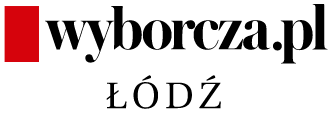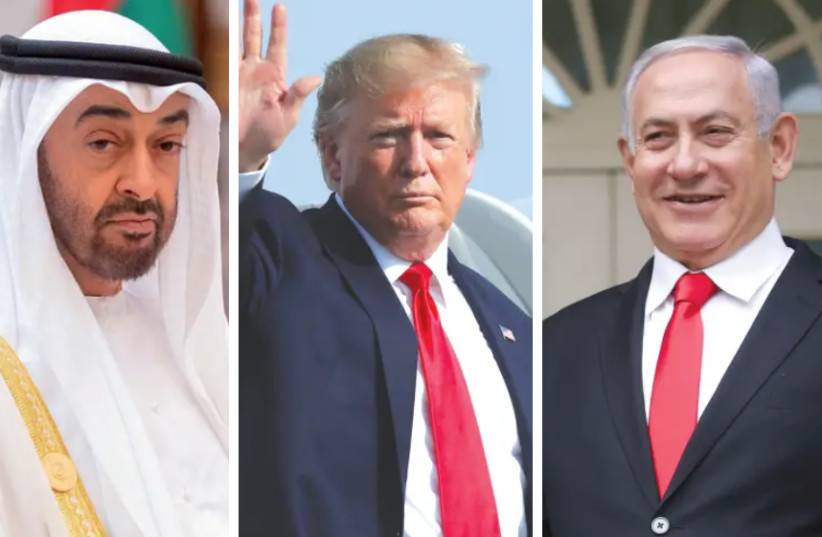 Ozdrowieńcy z koronawirusa wcale nie są zdrowi. W Łodzi trwają pionierskie w skali Europy badania
Ozdrowieńcy z koronawirusa wcale nie są zdrowi. W Łodzi trwają pionierskie w skali Europy badania
Agnieszka Urazińska
 dr n.med. Michał Chudzik, adiunkt Katedry i Kliniki Kardiologii Uniwersytetu Medycznego w Łodzi (Fot. Tomasz Stańczak / Agencja Gazeta)
dr n.med. Michał Chudzik, adiunkt Katedry i Kliniki Kardiologii Uniwersytetu Medycznego w Łodzi (Fot. Tomasz Stańczak / Agencja Gazeta)
Zestresowani muzycy i przepracowane pielęgniarki trudniej radziły sobie z koronawirusem. Wysportowana żona nie czuła choroby, a mniej ruchliwy, grubszy mąż – ciężko wspomina COVID-19. W Łodzi trwają pionierskie badania ozdrowieńców.
Rozmowa z dr. Michałem Chudzikiem, kardiologiem z Łodzi.*
Agnieszka Urazińska: Ilu ozdrowieńców pan zbadał?
– Już ponad 150 osób. To dorośli ludzie, którzy przechorowali COVID-19 w warunkach domowych.
Skąd pomysł, żeby poddawać ich badaniom?
– Obserwowałem sytuację epidemiczną i chorych przebywających w kwarantannie domowej. To potężna grupa, bo przecież zaledwie niewielki procent pacjentów przechodzi infekcję tak ciężko, że wymaga hospitalizacji. A po zakończeniu leczenia mają opiekę poszpitalną i badania. Z moich obserwacji wynikało, że cała reszta chorych może być tych analiz pozbawiona. To ludzie, którzy korzystają głównie z teleporad (całe szczęście, że NFZ uruchomił taką możliwość), ale po przebytej chorobie COVID-19 traktowani są jak zdrowi.
Ministerstwo Zdrowia codziennie załącza w swoim komunikacie dumną liczbę ozdrowieńców. Nie są zdrowi?
– To właśnie chciałem z moim zespołem sprawdzić. No i bardzo często nie są. Wszystko wskazuje, że COVID-19, nawet w tej łagodnej postaci, to nie jest krótka infekcja, tylko ogólnoustrojowy problem zdrowotny z możliwymi powikłaniami długoterminowymi. Pojawiły się już informacje, że wirus ma powinowactwo do naczyń i serca, i wiele wskazuje, że komplikacje mogą dotyczyć serca i układu krążenia. Jestem kardiologiem. Pomyślałem, że dobrze byłoby objąć opieką osoby po przebytym COVID-19, żeby jak najwcześniej wykryć ewentualne problemy. Stąd pomysł, aby stworzyć poradnię, gdzie mogą być zbadani przez zespół specjalistów.
Jakie problemy mają ozdrowieńcy?
– Przypomnę, że w naszych badaniach skupialiśmy się na pacjentach, którzy przechorowali COVID-19 w domu, a przebieg infekcji był średni, lekki, albo z minimalnymi objawami. To usypia czujność, prawda? Spodziewałem się, że po chorobie będą w dobrym stanie.
A tymczasem?
– Bardzo duże osłabienie, ograniczenie wydolności fizycznej, rozbicie – to główne problemy, na jakie się uskarżają. Tuż po chorobie takie samopoczucie nie dziwi. Ale nie spodziewałem się, że po miesiącu, dwóch czy trzech ci ludzie wciąż będą się czuli źle.
Mam pacjentów, młodych, silnych ludzi, którzy przed chorobą uprawiali sport. I oni teraz, po trzech miesiącach od negatywnego po infekcji wyniku testu, mówią: „wydolność bardzo spadła”, „nie mam na nic siły”, „bardzo szybko się męczę”. Wiele wskazuje, że przebieg rekonwalescencji jest dłuższy i cięższy, niż zakładaliśmy. Potwierdza się, że o koronawirusie wiemy mało i sporo nas jeszcze może zaskoczyć.
Na przykład?
– U sporej grupy pacjentów, tych młodych, którzy przed infekcją nie mieli żadnych problemów z wysokim ciśnieniem, podczas infekcji doszło do zaburzeń regulacji ciśnienia, które utrzymują się także w czasie rekonwalescencji. Po drugie, chorzy zgłaszają przyspieszoną pracę serca – to zawsze jest niepokojący objaw. To potwierdza, że koronawirus może mieć zgubny wpływ na układ krążenia.
Co jeszcze wynika z badań?
– U każdego z pacjentów, którzy przechorowali infekcję z uciążliwymi objawami, wyróżniają się pewne elementy złego stylu życia. W wywiadzie potwierdziliśmy przewlekły stres, zaburzenia snu albo niezdrowy sen. Z moich obserwacji wynika, że ludzie, którzy żyli niezdrowo, chodzili późno spać, pracowali w godzinach nocnych, byli przemęczeni i zestresowani, dużo ciężej przechodzili infekcję.
A ci wypoczęci i wysportowani?
– Mieli lekkie objawy albo przeszli zakażenie bezobjawowo. Dobitnie było to widać na przykładzie badanych małżeństw. Mąż – z siedzącym trybem pracy, złymi nawykami żywieniowymi i nadwagą – a żona – szczupła, wysportowana. On przyznaje, że przebieg choroby był ciężki i dał mu się we znaki, a ona – że gdyby nie testy, nawet nie wiedziałaby, że jest zakażona. Takich przypadków było sporo. Na pewno osoby prowadzące zdrowy styl życia lepiej, łagodnie przechodzą infekcje i szybciej wracają do pełnego zdrowia.
Miał pan pacjenta, u którego COVID-19 miał ostry przebieg, a który przed chorobą nie był przemęczony lub zestresowany?
– Nie. Badałam osoby z ogniska koronawirusa, które pojawiło się w Łodzi na początku epidemii w szkole muzycznej. Zakażeni to byli młodzi ludzie. U niektórych objawy były nasilone i dokuczliwe. Dlaczego? Gdy dłużej porozmawiałem z pacjentami, okazało się, że przełom zimy to był dla nich czas wielkiego wysiłku i stresów. Uczą się w ogólnokształcących szkołach, muzyczna jest dodatkowym wyzwaniem i obciążeniem. W tym okresie mieli dużo występów, egzaminy, próby. Był stres, było dużo pracy, było przemęczenie.
Do mojej poradni trafiły też pielęgniarki, które przechorowały infekcję. Od każdej słyszałem, że tuż przed zakażeniem miała dużo dyżurów, także nocnych, dodatkowe obciążenia i problemy.
Czyli zdrowy i szczupły przechodzi COVID-19 lżej niż gruby i zmęczony?
– Bardziej bym podkreślił zdrowy styl życia. Waga to ważny, ale jeden z elementów zdrowia. Tylko kompleksowe budowanie odporności zapewnia dobry efekt. Dobitnie to widać na przykładzie naszych pacjentów.
Zatem nie bez powodu eksperci jak mantrę powtarzają: „schorzenia współistniejące”, gdy mówią o zmarłych na COVID-19?
– To nawet wydaje się oczywiste, że starsi i schorowani ludzie – a tacy w statystykach zgonów związanych z epidemią pojawiają się najczęściej – trudniej radzą sobie ze zwalczaniem infekcji. Jednak prowadzone przez nas badania to wskazówka, jak ustrzec się przez zakażeniem.
Dużo spać, zdrowo jeść, uprawiać sport, unikać stresu?
– I to nie są puste słowa. To ważna wskazówka do działań profilaktycznych. Jasne, że trzeba nosić maseczki, zachowywać dystans i dbać o higienę. Ale styl życia i kondycja są równie ważne. Należy bardzo dbać o zdrowie psychiczne – zarówno unikanie stresów jaki i regenerację naszego mózgu. Przewlekły stres ma poważny wpływ na osłabienie odporności.
Coś pana zaskoczyło w czasie badań?
– Objawy choroby. Tak jak wszyscy słyszałem, że objawem COVID-19 mogą być wysoka temperatura, zaburzenia węchu i smaku, kaszel, duszności. Gdy rozmawiam z pacjentami, którzy chorowali w izolacji domowej, powraca, owszem, temat utraty węchu. Jednak bardzo często pierwsze objawy, jakie mieli, różnią się od tych szeroko opisywanych. Zdecydowana większość pacjentów wcale nie miała wysokiej temperatury. Zdecydowanie wiele osób miało stan podgorączkowy, około 37 stopni Celsjusza, objawy lekkiej infekcji górnych dróg oddechowych i właściwie żadnych innych objawów.
– Na przykład to, że triaż prowadzony w szpitalach czy instytucjach nie jest miarodajny. Bo w wielu miejscach, nawet gdy mierzona jest temperatura, to dopiero ta powyżej 38 stopni jest powodem do wzmożonej czujności – a ona pojawiała się często po kilkunastu dniach od pierwszych objawów. A w ankietach odpowiada się na pytanie o kaszel. Z naszych badań płynie prosty wniosek – należy wzmagać czujność, nawet jeśli ma się objawy lekkiej infekcji. Bo to może być koronawirus. I, jeśli nawet dla nas jest niegroźny, a choroba przebiega skąpoobjawowo, to możemy zakazić kogoś, kto jest osłabiony, schorowany albo w wieku senioralnym.
I jeszcze ciekawostka – u wielu osób po zakażeniu nie tylko nie ma gorączki, ale wręcz dochodzi do obniżenia temperatury. Są osłabieni i przez kilka dni mają 35 stopni Celsjusza. Dlatego tak ważne jest, aby wzmożony reżim sanitarny zachowywali wszyscy. Wielu pacjentów podaje jako jedyną dolegliwość bardzo duże ogólne osłabienie.
Wczesną wiosną obawialiśmy się, że trzeba będzie wybierać, kogo podłączyć do respiratora, że zabraknie miejsc w szpitalach. Z przerażeniem obserwowaliśmy, co dzieje się we Włoszech czy w Hiszpanii. Jak pan myśli, dlaczego koronawirus obszedł się z Polakami dość łagodnie?
– Odpowiedź – lockdown. Myślę, że w marcu i kwietniu bardzo dobrze zaizolowaliśmy naszych seniorów. To była ta grupa, która we Włoszech i Hiszpanii najbardziej ucierpiała. My tę izolację marcowo-kwietniową utrzymywaliśmy z dużym zaangażowaniem. W domach zamknęli się ludzie ze wszystkich pokoleń. A seniorzy – najskuteczniej. Od wielu osób słyszałem, że tygodniami nie spotykali się z bliskimi w starszym wieku, tylko zostawiali zakupy na wycieraczce. I mamy dobry efekt.
Gdzie prowadzicie badania?
– W poradni kardiologicznej CM Boruta w Zgierzu oraz w szpitalu im. Biegańskiego w Łodzi, w ramach I Kliniki Kardiologii Uniwersytetu Medycznego w Łodzi. Pracujemy jako zespół wielospecjalistyczny – kardiolodzy, angiolodzy, pulmonolodzy, specjaliści od badań obrazowych. Pomógł nam fakt, że w maju NFZ zniósł limity przyjęć dla pacjentów, którzy po raz pierwszy korzystają z poradni kardiologicznej. Mieliśmy dużo szczęścia. Pacjenci też. Każdemu wykonujemy echo serca, holter ciśnieniowy, EKG, badania krwi. Gdy zachodzi potrzeba, robimy też tomografię płuc czy rezonans serca. Pacjenci są dokładnie zaopiekowani. To nie jest jednorazowe badanie. Oni mogą korzystać z porad także później, w razie jakichkolwiek niepokojących objawów. Chcemy stworzyć opiekę kompleksową i długoterminową. Mamy dużą szansę, że ewentualne komplikacje poinfekcyjne wykryjemy we wczesnym stadium.
Czy 150 pacjentów wystarczy?
– Patrząc na ilość osób zakażonych w naszym województwie, to jeszcze nie jest grupa reprezentatywna, ale wystarczająco duża, aby mówić o poważnych wnioskach. Badania będziemy kontynuować. Cały czas zgłaszają się nowi pacjenci.
Poradnia podobna do naszej zacznie działać wkrótce w Tomaszowie Mazowieckim. Rozmawiałem z Dyrektorem ICZMP profesorem M. Banachem – planujemy, aby taka poradnia powstała również dla dzieci.
To pionierskie badania w Europie – unikalny materiał. Wnioski opracujemy, a jesienią chcemy publikować w branżowej literaturze medycznej, także zagranicznej. Liczymy, że pomogą w poznaniu choroby, która dla nas wszystkich ma wiele tajemnic.
Jak znajdujecie pacjentów?
Pomaga nam sanepid. Inspektorzy wysyłają chorym maile z informacją, gdzie mogą się zgłosić. Doceniamy, bo wiemy, że pracownicy sanepidu mają teraz pełne ręce roboty. To bardzo duża dodatkowa praca pracowników stacji sanepidu w Łodzi w województwie. Bez ich zaangażowania nie udałoby się zorganizować tego badania. Pacjenci też są zadowoleni, że lekarze troszczą się o ich zdrowie.
* Inicjatorem i koordynatorem badań jest dr Michał Chudzik, kardiolog. Badania prowadzone są w ramach I Kliniki Kardiologii Uniwersytetu Medycznego szpitala im. Biegańskiego w Łodzi. Kierownikiem naukowym jest prof. Jarosław Kasprzak.
Pacjenci mogą się zapisywać w tych poradniach. Dla ułatwienia kontaktu uruchomiliśmy specjalny numer telefonu – 600 813 600. Wystarczy zadzwonić lub wysłać SMS z hasłem „COVID”, na pewno oddzwaniamy i ustalamy termin konsultacji.
ani też webmastera Blogu Reunion’68, chyba ze jest to wyraźnie zaznaczone.
Twoje uwagi, linki, własne artykuły lub wiadomości prześlij na adres:
webmaster@reunion68.com



